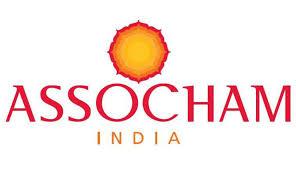ASSOCHAM-Cancer Care Foundation of India organised Discussion on Prevention of Cervical Cancer and importance of human papillomavirus (HPV) vaccine
New Delhi: The Apex Chamber ASSOCHAM (The Associated Chambers of Commerce and Industry of India) in association with Cancer Foundation of India (CFI) organized the second session of its web series of scientific and purpose-driven conversations on “Empowering Preventive Healthcare for Women: Series on Prevention of Cervical Cancer” with CFI as knowledge partner. With over 100 participants, the event highlighted the urgent need for preventive health, especially in the fight against the diseases caused by the human papillomavirus (HPV).
The second session of this series that was screened on September 08, 2021, witnessed global speakers and subject matter experts highlight the safety and efficacy of HPV vaccination and the role of HPV vaccine in protecting our future generations.
Moderated by Sutapa Biswas, Executive Director of Cancer Foundation of India (CFI) the second session opened with remarks from Commander Navneet Bali, Co -Chair, ASSOCHAM Healthcare Council & Regional Director – North, Narayana Health who highlighted the role women’s health in our lives. If the women are healthy, the entire family, the entire nation and the entire world gets benefitted.
“In any vaccination program, education is the main key to remove the economical, psychological and cultural resistances”, he added.
Dr. Neerja Bhatla, Professor & Unit Head, Dept. of Gynecology, AIIMS-Delhi stressed over the safety of HPV vaccine. She added that there are mild side effects of the vaccine, but vaccine is absolutely safe.
She also explained the process of vaccine trials conducted to ensure safety. After passing all phases of the trials and even when vaccine is being marketed, the surveillance still continues.
“India has started preparing itself for the WHO’s call of eliminating cervical cancers. We have seen the gynaecologist, advocacy group, policy makers are showing more interest”, she added.
She also shared that the best age of getting HPV vaccination is between 9 to 15 years before any sexual activity. The upper age cut off of the vaccine is around 45 years, considering many factors.
Dr. Smita Joshi, Professor, Dept of Preventive Oncology, Hirabai Cowasji Jehangir Medical Research Institute, Pune shared that currently we have two HPV vaccine available in India, quadrivalent vaccine and bivalent vaccine, others are still under studies.
Adolescent girls are more affected by the HPV vaccine as compared to the adult women. The infection in adolescent girls remains persistence which likely to cause more cervical abnormalities.
She also added that the effect of vaccine is long lasting. Even the one dose of the vaccine is equally effective to the two or three doses.
We have very good responses to vaccination in India so far, even with the covid-19 vaccine. The major hurdle for the lower-middle income group is the cost of the vaccine. And other is the need of giving this vaccine, which only can be overcome by spreading awareness and education regarding this vaccine. “Early screening and vaccination are the keys to combat cervical cancer”, she added.
Dr. Mel Kohn, Regional Director, Medical Affairs Lead for HPV vaccines, Europe, Merck & Co. put spotlight on the global initiative of eliminating cervical cancer announced in 2018 by WHO. Cervical cancer is the second leading cause of cancer among women in India with roughly 100000 to 200000 cases diagnosed each year. From the global perspective almost the quarter of the world cervical cases comes from India.
India has to fully engaged in the goal of eliminating cervical cancer globally. “There is a virus, there is a vaccine”. HPV also causes number of other cancers in men and women and these also get easily reduced/ prevented by the vaccination
HPV vaccine is not only for women, women get HPV from men. Vaccinating males is equally important. Males also directly benefits from the HPV vaccine as it prevents them from many other cancers as well.
Dr. Kohn also shared that every year more and more countries are getting onboard with the HPV vaccination program. From 2017 to 2020 the supply of HPV vaccines has been doubled by the MSD.
Ms Nita Arora, Principal/Co-learner, Sri Venkateshwar International School, New Delhi, highlighted the role of preventive healthcare programmes in schools. She shared how at her school she is promoting the health of their students, their parents and the school staff.
Before it becomes too late, the HPV vaccination should be added to the Mass Immunization programme, if we really want to get rid of HPV. Immunisation gets improved when there are strict quarantine, universal immunisation and public awareness.
Even people are very scared of getting themselves tested for the cervical cancer, the proper education, awareness and appropriate behaviour needs to be promoted.
She also raised very important point that insurance companies should also start covering the cervical cancer if the government is not subsidising the vaccination.
To summarise, the panel highlighted the need, safety and efficacy of the HPV vaccine, Mr. Commander Navneet Bali, Co -Chair, ASSOCHAM Healthcare Council & Regional Director – North, Narayana Health thanked all the speakers and participants for their valuable insights and ended on the positive note of starting movement of vaccinating people, who cannot afford the vaccine with the help of NGO’s , hospitals and schools.
The third session of this series of prevention of cervical cancer is scheduled for Monday, September 27, 2021. The information of these will be available on ASSOCHAM’s Website (www.assocham.org)

